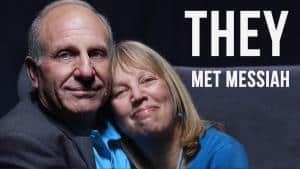Torah Portion for week 23: Exodus 38:21 – 40:38
פְקוּדֵי
Pekudei (Accountings of)
Believing that Jesus is God contradicts the Torah, doesn’t it? “Hear, O Israel: The Lord our God, the Lord is one” (Deut 6:4). The “shema” is, without a doubt, the theological standard by which all claims about the God of Israel are measured, including the claims about God in the New Testament. Since God is one, how is it possible to claim that Yeshua is also God without contradicting the Torah's teachings about the One and Only God? And if Yeshua is God on earth, why does the New Testament tell us that Yeshua prayed to God in heaven? Isn’t this a contradiction? Because belief in the deity of Yeshua is not only considered blasphemous by religious Jews and but also rejected by many so-called Christian cults, no sincere follower of the Messiah Yeshua can avoid these questions. Surprising as it may seem, the final chapters of the book of Exodus are crucial for helping us understand why belief in the deity of Yeshua is perfectly consistent with, not contradicted by, the Torah.
The final verses of Exodus read:
And he [Moses] erected the court around the tabernacle and the altar, and set up the screen of the gate of the court. So Moses finished the work. Then the cloud covered the tent of meeting, and the glory of the LORD filled the tabernacle. And Moses was not able to enter the tent of meeting because the cloud settled on it, and the glory of the LORD filled the tabernacle. Throughout all their journeys, whenever the cloud was taken up from over the tabernacle, the people of Israel would set out. But if the cloud was not taken up, then they did not set out till the day that it was taken up. For the cloud of the LORD was on the tabernacle by day, and fire was in it by night, in the sight of all the house of Israel throughout all their journeys. (Exod 40:33-38)
In these final verses of Exodus, we see how God’s glorious presence moves from Mount Sinai to the Tabernacle, and in many ways, the tabernacle becomes a portable Mount Sinai. Just as Mount Sinai had three levels of holiness, likewise the Tabernacle had three levels of holiness. Just as God’s glory dwelled on the summit of Mount Sinai (Exod 24:15-16), so God’s glory filled the tabernacle, and the Holy of Holies in particular. This spectacular localization of God’s glory inside an earthly tent begs the question: How can the One True God dwell in the tabernacle without ceasing to be God everywhere else? For the Torah clearly teaches that “the Lord is God in heaven above and on the earth beneath; there is no other” (Deut 4:39b). Likewise we read in the prayer of King Solomon, “But will God indeed dwell on the earth? Behold, heaven and the highest heaven cannot contain you; how much less this house that I have built!” (1 Kgs 8:27). Wait a minute! Isn’t this a contradiction? You mean the Torah teaches that God can dwell in one particular place without ceasing to be God everywhere else? Yes it does. Difficult to understand, but true it is.
Here we see that the New Testament’s teaching about Yeshua does not contradict the Torah at all. Quite the opposite: it is only through the Torah that we are able to understand and appreciate Yeshua’s true identity. The apostle John writes, “In the beginning was the Word, and the Word was with God, and the Word was God… And the Word became flesh and dwelt [in Greek, tabernacled] among us, and we have seen his glory, glory as of the only Son from the Father, full of grace and truth” (John 1:1, 14). Just as the God of Israel dwelled in the tabernacle without ceasing to be God over all, so God dwelled bodily in Yeshua without ceasing to be God over all! No wonder Yeshua later refers to himself as the temple (John 2:19-21), for he was! As Paul says in Colossians 2:9, “For in him the whole fullness of deity dwells bodily.”





















